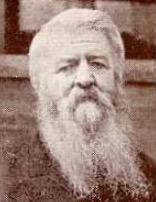Last updated on 2017-06-19
The Legislature’s Initiative and Referendum Task Force will meet for two days week after next. Friends of democracy, clear your calendars for Day Two.
On the first day, Tuesday, June 20, the panel of legislators, election officials, and other appointees (but no independent advocates of the initiative and referendum process) will meet to listen to their chosen experts and each other first. Only on the second day, Wednesday, June 21, at 9:10 a.m., will they turn to the public and say, “Gee, citizens, who actually use initiative and referendum to check the power of us legislators, what changes do you think we legislators should make to the process?”

I’ll tell you what changes the Legislature should make: none. Keep your hands off the people’s legislative process. You’ve done enough damage, and some of you (Rep. Don Haggar, Sen. Jim Bolin, Sen. Ernie Otten, all on this task force) want to do more. Initiative and referendum, Father Robert Haire‘s gift to democracy, need more protection from your Legislative meddling. If you can bear it in your grasping arrogance, leave initiative and referendum alone, and let the people come up with their own solutions…
…like the Voter Initiative Protection Amendment, which Attorney General Marty Jackley slid off his desk yesterday with his official explanation, a full three weeks sooner than the law required him to complete his analysis. (Thanks, Marty!) The sponsors are getting petitions ready for circulation this month and could well have them ready for people to sign at the June 20–21 hearings in Pierre.
To review, the VIP Amendment would strengthen voter power through initiative and referendum process by adding these provisions to our state constitution:
- Allow citizens to refer any law, except for the general appropriations bill.
- Allow citizens to refer laws enacted with an emergency clause, but leave those laws in effect until voters get to vote on them.
- Require a two-thirds vote of both chambers of the Legislature to amend or repeal any voter-approved law for seven years after enactment.
- Clarify that if conflicting ballot measures pass, the measure with the higher vote total takes precedence.
- Set the enactment date for approved ballot questions at 30 days after the election.
- Prohibit the Legislature from changing the number of voters who must sign petitions to get measures on the ballot, the time available for circulating petitions, or the vote totals required to pass ballot measures.
- Prohibit the Legislature from requiring more than 10% of qualified electors to sign petitions to place constitutional amendments on the ballot.
Those are the changes we should make to the initiative and referendum process. I can think of more, but they all move toward more power for the voters and less power for the Legislature… which is the kind of transfer of power back to the people that I thought we were promised—lo! those many months ago—on a rainy January day by a President that 61.5% of South Dakotans voted for.
Legislators, just sit back and chill. Let the voters do the talking.
The interim I&R committee takes public testimony on Wednesday, June 21, from 9:10 a.m. to 11:00 a.m., in Room 413 of the Capitol in Pierre.
I notice the task force doesn’t seem to be looking at the changes that have been made to the I&R process since 2000. That is where a lot of the problems started and where reforms really need to be made. Most of that stuff added since 2000 should be repealed.
The over bureaucratization of the process has made it cumbersome and pushed deadlines out to a ridiculous degree. There is no reason deadlines shouldn’t be moved back to where they were in the 1990s.
There really is no need for a lot of the top-down command and control of the people’s process by the executive branch or by the Legislature. A lot of this stuff is part of a strategy adopted by special interests to make the I&R more and more difficult to use by grassroots citizens. It has been a strategy of certain special interests to so screw up the I&R process that they could gradually over time end ballot questions.
Some of this requires a consideration of separation of powers issues. particularly in the case of various executive branch functions that impinge on the I&R process. Yes, the SOS should be tasked to do the signature checking and the campaign finance enforcement, but everything dealing with the AG should be given to the LRC. The AG explanation is done in secret, and is very much subject to corruption.
The task force isn’t looking at which special interests and which political interests have been supporting all the efforts to cripple the initiative over time. Will this task force have the guts to speak truth to power, or are they going to be part of the problem? We’ll see.
I don’t have a better solution, but I still am not fond of #4. There might not be a good way to automatically resolve conflicts.
Tyler, maybe there’s a more rigorous mathematical way to pick a winner, but #4 is (a) as simple as it gets, (b)democratically legitimate, (c) copied straight from North Dakota’s constitution, and (d) better than the SD status quo, which appears to prescribe no clear resolution.
Donald, the task force does have some LRC-prepared history on I&R among their posted agenda documents. But I lack confidence in Haggar, Bolin, and Otten’s desire to look at history. They just want to make it harder for us to use I&R. We need to fight them.